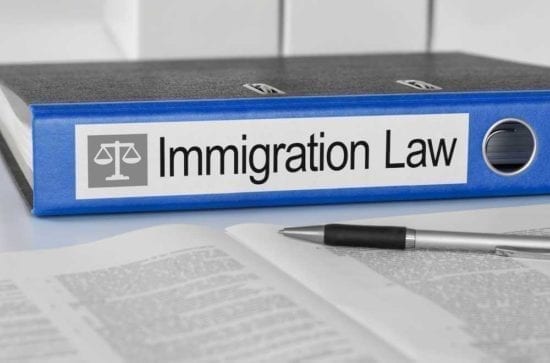What is a disability?
A disability is a physical or mental condition that makes it hard for you to do everyday things. It can affect how you take care of yourself, talk to your family or friends, go to school, or work.
1 in 4 adults have a disability in the USA. Not all disabilities are easy to see. There are many different types of disabilities, such as problems with walking, thinking, living alone, hearing, or seeing. Disabilities may also include difficulties with dressing or bathing.
Immigrants with disabilities
If you are an immigrant living with a disability, you may face many challenges such as:
- Physical and mental symptoms
- Discrimination and stigma
- Concern about immigration status
- Fear of being detained or deported
- Limited access to health insurance
- Limited access to medical services
- Lack of access to certain public benefits
- Inaccessibility in private and public spaces
- Services not offered in multiple languages
Even with these challenges, there are many resources and people who can help you live a better life in the USA.
Disability laws and rights
The Americans with Disabilities Act (ADA) is a federal law that protects the rights of people with disabilities. It stops discrimination and makes sure that people with disabilities have the same opportunities as everyone else. This law applies to anyone with a disability, no matter their immigration status.
Discrimination happens when someone treats you unfairly because of your disability, age, where you were born, race, religion, gender identity, or sexual orientation.
Many groups have to make sure that people with disabilities can use their services just like everyone else. This includes:
- Businesses
- Employers
- Housing providers
- Public transit systems
- Schools and universities
- State and local governments
- Telephone companies
If you have a disability, you have the right to:
- Not tell your employer you have a disability when you apply for a job or after you are hired.
- Ask for reasonable accommodations or changes to your job so you can have an equal chance to succeed.
- Make changes to your apartment or home to make it easier for you to get around.
- Take your service animal into your home and any business and public space, even if they have a no-pet policy.
- Vote at polling places and voting machines that are accessible to you.
- Access disability services and benefits no matter your immigration status.
Report discrimination and abuse
If you have been treated unfairly because of your disability, you can file a complaint with the federal government. Reach out to the Equal Employment Opportunity Commission (EEOC) for employment issues or the Department of Housing and Urban Development (HUD) for housing issues.
If you have experienced abuse because of your disability, you can report it to your state social services agency. Your information will be kept confidential.
Contact the ADA information line if you have questions. You can also reach out to a lawyer for legal help.
Get support for your disability
If you have a disability, you can ask for accommodations to help meet your needs. An accommodation is a change that allows you to access and participate fully in an activity or space. You can get accommodation anywhere, like housing, workplaces, schools and universities, government offices, public spaces, transit, and telephone services.
Examples of disability accommodations include:
- Physical changes: elevators, grab bars, handrails, ramps, wider doorways, and reserved parking spots
- Assistive technologies: accessible screen reader and computer software, specialized keyboard and mouse, visual alarms, or vibrating devices
- Accessible communications: information in sign language and multiple languages, closed captioning, audio materials, Braille, or large print, visual cues or written
- Policy changes: flexible work or school schedule, additional time for tasks and exams, access to service animals
How to ask for an accommodation
If you need a disability accommodation, you can ask for help from the office or group that can make changes for you. This could be your housing provider, employer, school, or social service agency. You can ask for an accommodation at any time.
You can make your request in person, by phone, or in writing, or through TTY. Some offices also let you make a request online.
You do not need to mention the ADA or use the phrase “reasonable accommodation.” Simply explain that you need a change related to a medical condition. Be clear about the type of help you need.
- Housing: Ask anyone who works for your housing provider. Some housing providers have accommodation coordinators who can help you.
- Employer: Let your employer know that you need a change at work due to your medical condition.
- Education: Contact your school office ahead of time to discuss accommodations.
- Businesses: Speak to a manager or customer service representative.
- Public transit: Contact your transit provider.
- Immigration: For U.S. Citizenship and Immigration Services, make requests for accommodation online or call the USCIS Contact Center for help.
- Social services: Contact your social service agency directly.
- Health care: Speak to your medical provider’s staff.
In some cases, you may be asked to provide documentation of your disability. This could include a doctor’s note or other medical records. You have the right to privacy. You are not required to share specific details about your disability unless it directly impacts what you are asking for.
If someone offers you aid or accommodation, you have the option to accept or decline it. You can decline any assistance if you feel it is not helpful. Not everyone with a disability needs the same accommodation.
Contact the ADA information line if you need help asking for an accommodation.
Disability benefits
The U.S. government offers public benefits for persons with disabilities to access important services. These programs have specific eligibility and time requirements.
Qualified immigrants, such as refugees, asylees, special immigrant visa holders, humanitarian parolees, and victims of human trafficking, can get these benefits. Lawful permanent residents (green card holders) can get similar benefits as U.S. citizens. Undocumented and other immigrants are not eligible for most public benefits.
Social Security Disability Insurance (SSDI)
SSDI provides income for people who have a disability that stops or limits their ability to work for a year or more. Your monthly payment depends on your work history. You will also get health insurance coverage through Medicare.
Supplemental Security Income (SSI)
SSI is for people who have little to no income and have a disability (or if you are 65 or older). It does not require you to have a work history. The monthly payment amount can vary based on your income, resources, and living situation.
To apply for SSDI or SSI, fill out an online application. You can also call the SSI helpline at 1-800-772-1213. You will get an appointment to complete your application. You only need one application to apply for these benefits.
Medicaid and Medicare
Medicaid provides free or low-cost health insurance to people with disabilities. Most immigrants must wait 5 years after receiving immigration status before applying for Medicaid. Refugees and asylees do not have to wait.
To apply for Medicaid, fill out an application with the Health Insurance Marketplace. You can also check your state Medicaid agency for eligibility information and how to apply.
Medicare provides free or low-cost health insurance for adults 65 or older and people with disabilities and serious illnesses. If you get Social Security disability benefits, you will get Medicare automatically after 24 months.
To apply for Medicare, fill out the online application for Medicare. You can sign up for Medicare when you enroll in Social Security benefits or retire. Call the Medicare line at 1-800-633-4227 for help.
Emergency Medicaid pays for emergency services, including being in the hospital. Emergency Medicaid is available for immigrants who are not considered “qualified non-citizens” but meet all income and state residency rules. Undocumented immigrants can get emergency Medicaid.
If you have a disability and do not qualify for disability benefits, you can apply for health insurance through the ACA marketplace. You should qualify if you are a U.S. citizen, green card holder, or have a humanitarian status (Temporary Protected Status, asylum, Convention Against Torture, victim of trafficking, or DACA).
Public housing
If you have a disability and need help finding an affordable place to live, you can apply for public or subsidized (low-cost) housing or housing vouchers (rental assistance). These housing benefits are available to refugees and asylees, humanitarian parolees, and grantees of withholding of removal.
If you are undocumented or have temporary immigration status, you are not eligible for these programs. You can still live with a family member who is in the program and has legal immigration status.
Ticket to work
Ticket to Work offers free employment services to people with disabilities ages 18-64 to help with job search and get work experience. You can apply if you receive SSI or SSI benefits based on disability. You can contact the ticket to Work helpline at 1-866-968-7842 or 1-866-833-2967 (TTY).
Assistive Technology
Many states allow you to borrow assistive technology resources for free. You can contact the AT program in your state for more information.
| Find information about more public benefits and ORR services for refugees, asylees, and other immigrants. Your local social services agency can answer any questions you may have. Benefits.gov lists benefits by state. |
Find help
Remember to seek help if you need it. Many community organizations provide services and support for people with disabilities, including immigrants. These organizations can help with legal help, healthcare, housing, and employment. If you are a caregiver, these organizations may be able to share resources.
Organization |
Offers |
Advocacy training, internships, mentorship, scholarships, and career center for people with disabilities |
|
Specialist support on ADA topics such as accommodations at work, housing, and school |
|
Services and support for people with intellectual and developmental disabilities |
|
Advocacy and services for people with disabilities |
|
Legal advocacy, training, and education for people with disabilities |
|
Legal advocacy for people with disabilities |
Accessibility tools
There are accessibility tools that help people with disabilities navigate the web. Many of these tools are already built into your mobile devices and computers. Search for the accessibility option in your systems settings to see what features are available.
You can also access free tools such as:
- Orca Screen Reader: uses keyboard commands to read aloud the content on the screen
- NonVisual Desktop Access: reads the text on the screen in a computer-generated voice
- Mercury Reader: a browser extension that removes ads and distractions and adjusts text size and contrast.
- ColorZilla: a browser extension that helps with color identification and adjustments
- ATbar: a browser tool that helps adjust webpage appearance and readability
- MyStudyBar: A collection of open-source software programs for people with dyslexia

You are not alone. Learn about mental health and how to get help. Find services and support for immigrants.
We aim to offer easy to understand information that is updated regularly. This information is not legal advice.






